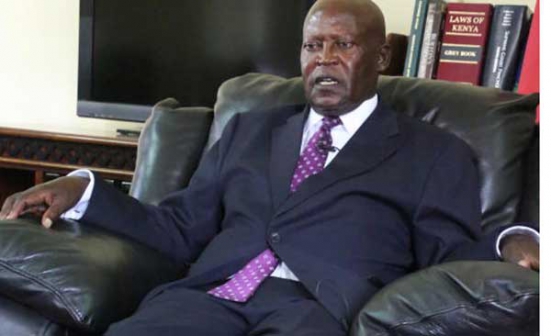×
The Standard e-Paper
Home To Bold Columnists

Throw in the towel or face a tribunal and be damned?
These were the two stark choices facing Supreme Court Judge Philip Tunoi yesterday as the reality of being dragged through a murky process of clearing his name started to dawn on legal experts and observers.